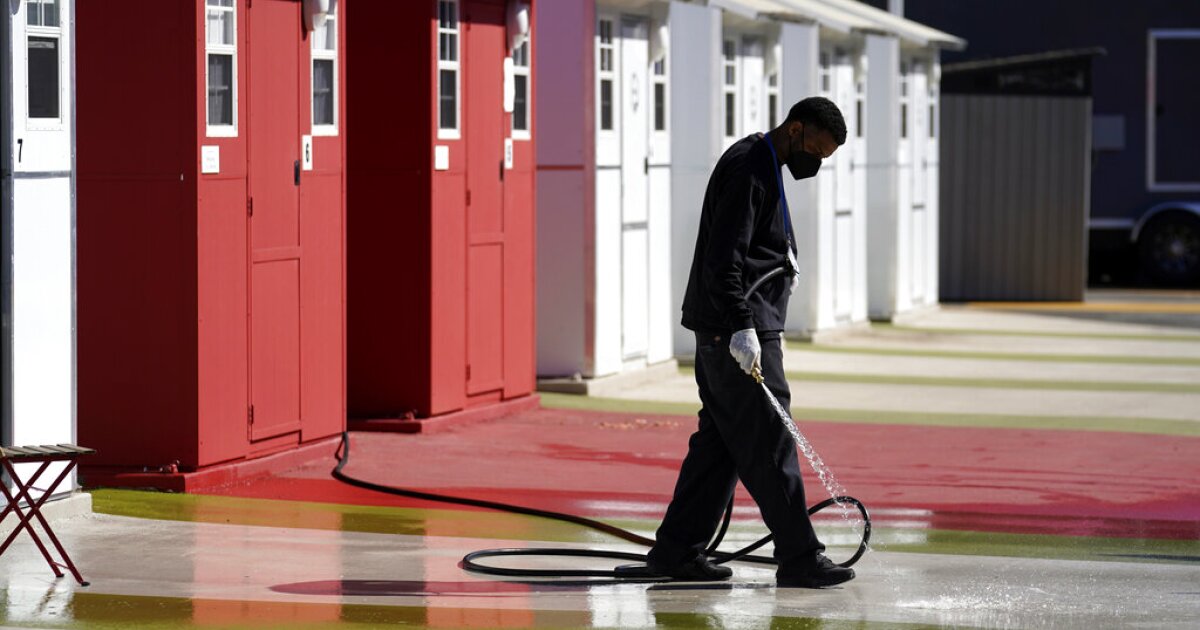

The Denver City Council approved plans Monday to nearly double the size of a planned homeless encampment that uses tiny homes as shelters.
In an amended agreement with nonprofit group Colorado Village Collaborative, which runs the encampment, the city government added $500,000 toward the camp, bringing the number of tiny homes from 24 to 44.
MONTANA GOP SENATE CANDIDATE WINS RUBIO ENDORSEMENT IN BID TO UNSEAT JON TESTER
The expenditure will fund the units, sewage, water, electrical, fencing, and project management, among other things, at the Monroe Street site.
Currently, CVC staffs the existing homes as well as an office and a community building. The goal of the tiny home camps is to transition homeless people into stable housing over time.
Denver is home to multiple planned homeless camps, some of which use tiny homes, while others use tents. CVC was first contracted by Denver in 2017 to build the city’s first endeavor into the camps, the Beloved Community Village.
A study conducted of the first site by the University of Denver’s Burnes Center on Poverty and Homelessness in the first nine months of its operation determined the site to be a “success.”
According to the study, crime near the encampment plateaued, and neighbors reported few problems with the homeless residents. In addition, 10 of 12 original residents, most of whom were “chronically homeless,” maintained their housed status, with three moving to permanent housing.
The Monroe Street location was opened in 2020 and is intended to run through at least 2024. The tiny homes there are about 100 square feet and have amenities like electricity, heat, and fans. According to CVC, an average-length stay is one year.
Despite the reported success of the sites, Denver’s homeless population continues to grow.
According to the U.S. Department of Housing and Urban Development, the Mile High City’s total homeless population in 2022 was 6,884.
Total homelessness in Denver increased by nearly 13% from 2020 to 2022, well above the 0.3% national average increase over the same period of time. Unsheltered homelessness, which is specific to those who regularly sleep in cars, parks, streets, and other spaces not fit for human habitation, increased by 33% in the city during that time.
CLICK HERE TO READ MORE FROM THE WASHINGTON EXAMINER
In June, the Denver City Council voted to make the homeless sites a permanent part of the city’s zoning code, allowing them to exist beyond the December 2023 date they were supposed to end.
The Denver City Council and CVC did not respond to a request for comment from the Washington Examiner.





